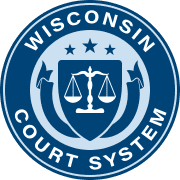Wisconsin Court Records Lookup
The following is for information purposes only
Wisconsin Court Records

What types of courts are in Wisconsin?

In the state of Wisconsin, there are four levels of courts in their judicial system. The lowest level includes trail courts, including municipal and circuit courts. These courts have general jurisdiction and file appeals to the court of appeals. Among the trial courts, the branch of the judicial system in Wisconsin with the highest level of jurisdiction is the Supreme Court. The Supreme Court has the power to overturn decisions and can decide to hear appeals. They can also determine whether or not to overturn any decision made in the lower courts.
Additionally, the state of Wisconsin has a total of two federal courts, one that serves the eastern half of the state and the other which serves the western. Each branch has a bankruptcy court that deals with federal cases where bankruptcy is involved. The federal courts can appeal to the circuit courts of the United States in their district.

How are court cases in Wisconsin managed?

The court with the highest power is the Supreme Court, which is overseen by seven justices. These justices are elected in nonpartisan elections. The state of Wisconsin is split in terms of political affiliation and no political party reigns in the state. The Supreme Court has jurisdiction over all original actions and can hear appeals from lower courts. They have the power to overturn any ruling if they choose and they can review any cases that were appealed by the court of appeals.
All of the trial courts can appeal to the court of appeals, which has to be done within 45 days of the initial ruling. Courts must decide what will happen with the case in a matter of 21 days, deciding whether or not they will hear the case and which court will hear the case. In some cases, there is no need for a hearing and in others the court decides to hear a case, deciding whether or not to overturn the original decision from the lower courts.

Wisconsin Courthouses, Sheriff's Offices, Police Departments, Jails, & Prisons
- Adams
- Ashland
- Barron
- Bayfield
- Brown
- Buffalo
- Burnett
- Calumet
- Chippewa
- Clark
- Columbia
- Crawford
- Dane
- Dodge
- Door
- Douglas
- Dunn
- Eau Claire
- Florence
- Fond Du Lac
- Forest
- Grant
- Green
- Green Lake
- Iowa
- Iron
- Jackson
- Jefferson
- Juneau
- Kenosha
- Kewaunee
- La Crosse
- Lafayette
- Langlade
- Lincoln
- Manitowoc
- Marathon
- Marinette
- Marquette
- Menominee
- Milwaukee
- Monroe
- Oconto
- Oneida
- Outagamie
- Ozaukee
- Pepin
- Pierce
- Polk
- Portage
- Price
- Racine
- Richland
- Rock
- Rusk
- Saint Croix
- Sauk
- Sawyer
- Shawano
- Sheboygan
- Taylor
- Trempealeau
- Vernon
- Vilas
- Walworth
- Washburn
- Washington
- Waukesha
- Waupaca
- Waushara
- Winnebago
- Wood

Which trial courts are in Wisconsin?

The municipal courts in the state of Wisconsin do not hear cases where juries are required. Instead, they hear cases that deal with minor violations and traffic violations. For any ordinances within the state, it is the jurisdiction of the municipal court to oversee them. Though the municipal courts have jurisdictions, they have the circuit court and the court of appeals over them for cases that involve more serious crimes.
The court deals mostly with small claims, which include:
- Evictions
- Repossession of property
- Property damage resulting in $5000 of damage or less
- Personal injury that results in damages of $5000 or less.

For the jury trials in the state, the circuit courts have jurisdiction. In this court, the trials consist of small claims up to $10,000 and domestic relations. This court has jurisdiction over cases that deal with family matters including divorce, custody battles, and even property. This court also hears cases that involve juveniles, though most of them are not in the presence of a jury. While the circuit courts can hear appeals from the municipal court, it is ultimately the court of appeals in Wisconsin that decides whether cases can be appealed or not.

What are the federal district courts in Wisconsin?

The state of Wisconsin has two federal courts. The federal district courts in Wisconsin are the:
- Eastern District of Wisconsin – The Eastern District Court of Wisconsin has jurisdiction over cases in the eastern half of the state. That includes counties like Brown, Dodge, and Green Lake. All of these counties are split into two divisions, which serve the counties in their area. The Eastern District of Wisconsin has jurisdiction over all civil and criminal cases that violate federal law.
- Western District of Wisconsin – The Western District Court of Wisconsin deals with the western half of the state, which includes counties like Adams, Green, and Rusk. The federal court in the Western District has jurisdiction over all of the federal cases that involve civil and criminal cases in the state.
There are also two federal bankruptcy courts in the state, which have jurisdiction over all cases that involve bankruptcy. Both the Eastern District and the Western District have a branch of bankruptcy courts, which deal with cases that handle bankruptcy throughout the state.
The federal courts in Wisconsin have a panel of justices that are appointed, most of which serve life terms. They are nominated by the president of the United States and confirmed into the court after a vote by the United States Senate. All appeals go to the U.S. Court of Appeals for the 7th Circuit for both the federal courts and the federal bankruptcy courts.

How to find electronic court records in Wisconsin?
Due to the Wisconsin Open Records Law, court records are public unless otherwise specified. When court cases are public, anyone can search for them, getting access to the trial, the parties involved, and the overall ruling. For those interested in obtaining information, there are two ways to do so, either electronically or in person.
Electronic records can be found by visiting either the Wisconsin Circuit Court Access (WCCA) or the Wisconsin Supreme Court and Court of Appeals Case Access (WSCCA). For both, those interested will need to have the case number, the acting attorneys, or the names of the parties involved to look up information.
Those interested in court records can also visit the court in which the cases were heard, visiting the clerk's office for more information. The clerk's office will need to know the name of the document they are requesting and the case number or names of the parties involved. From there, the clerks can look up information, though it must be within office hours.
